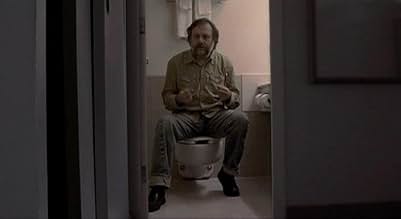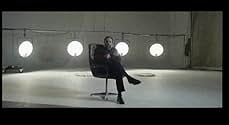IMDb RATING
7.8/10
7.5K
YOUR RATING
Slavoj Zizek examines famous films in a philosophical and a psychoanalytic context.Slavoj Zizek examines famous films in a philosophical and a psychoanalytic context.Slavoj Zizek examines famous films in a philosophical and a psychoanalytic context.
- Director
- Writer
- Star
- Awards
- 1 nomination total
- Director
- Writer
- All cast & crew
- Production, box office & more at IMDbPro
Featured review
Famous movies are subject to Freudian analysis: Possessed, The Matrix, The Birds, Psycho, Vertigo, Duck Soup, Monkey Business, The Exorcist, The Testament of Dr Mabuse, Alien, Alien Resurrection, The Great Dictator, City Lights, The Tramp, Alice in Wonderland, The Wizard of Oz, Dr Strangelove, The Red Shoes, Fight Club, Dead of Night, The Conversation, Blue Velvet, Solaris, Stalker, Mulholland Drive, Lost Highway, Persona, In The Cut, Eyes Wide Shut, The Piano Teacher, Three Colours: Blue, Dogville, Frankenstein, The Ten Commandments, Saboteur, Rear Window, To Catch a Thief, North by Northwest, Star Wars, Dune, Kubanskie Kazaki, Ivan The Terrible, Pluto's Judgment Day (Walt Disney), Wild at Heart.
You may wonder how the Marx Brothers come into play. According To Slavoj Zizek, the host and analyst of this intellectually tickling tour de force, Groucho is the superego, Chico the ego, and Harpo the id.
Scenes from the above listed films are used to illustrate concepts: the role of fantasy in shaping reality and vice-versa, the father figure, male and female libido, death drive, etc. Here are some of Slavoj utterances (most as paraphrases): "desire is a wound on reality", "fantasy realized is a nightmare", "music is the opium of the people" (borrowing from K. Marx), "of all human emotions, anxiety is the only one that is not deceiving". The whole is bracketed by an intro that declares "you don't look for your desires in movies, instead cinema tells you what you should desire" and concludes with the cineaste view that "cinema is needed today so that we can understand our current reality" -- I say, as long as censorship doesn't derail it.
The three part subdivision is merely mechanical, possibly with TV screening in mind. For the theater goer it is irrelevant.
You may wonder how the Marx Brothers come into play. According To Slavoj Zizek, the host and analyst of this intellectually tickling tour de force, Groucho is the superego, Chico the ego, and Harpo the id.
Scenes from the above listed films are used to illustrate concepts: the role of fantasy in shaping reality and vice-versa, the father figure, male and female libido, death drive, etc. Here are some of Slavoj utterances (most as paraphrases): "desire is a wound on reality", "fantasy realized is a nightmare", "music is the opium of the people" (borrowing from K. Marx), "of all human emotions, anxiety is the only one that is not deceiving". The whole is bracketed by an intro that declares "you don't look for your desires in movies, instead cinema tells you what you should desire" and concludes with the cineaste view that "cinema is needed today so that we can understand our current reality" -- I say, as long as censorship doesn't derail it.
The three part subdivision is merely mechanical, possibly with TV screening in mind. For the theater goer it is irrelevant.
Storyline
Did you know
- Quotes
[last lines]
Slavoj Zizek: In order to understand today's world, we need cinema, literally. It's only in cinema that we get that crucial dimension which we are not ready to confront in our reality. If you are looking for what is in reality more real that reality itself, look into the cinematic fiction.
- ConnectionsFeatures Les Lumières de la ville (1931)
Details
- Release date
- Countries of origin
- Official sites
- Language
- Also known as
- The Pervert's Guide to Cinema
- Filming locations
- Production companies
- See more company credits at IMDbPro
Box office
- Gross worldwide
- $9,633
- Runtime2 hours 30 minutes
- Color
- Aspect ratio
- 1.78 : 1
Contribute to this page
Suggest an edit or add missing content

Top Gap
By what name was Le Guide pervers du cinéma (2006) officially released in India in English?
Answer




















